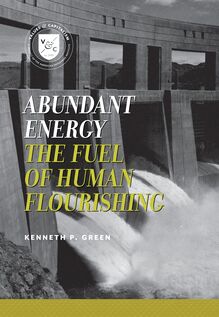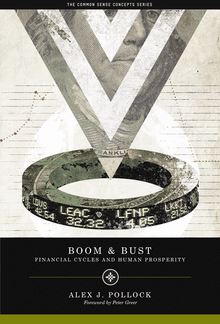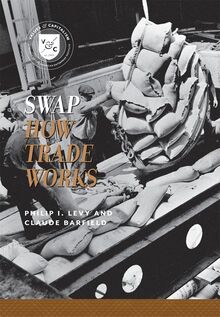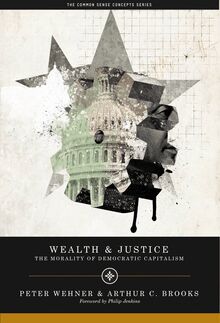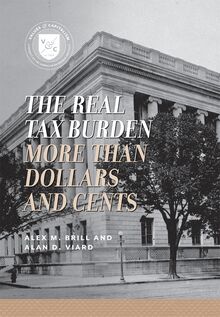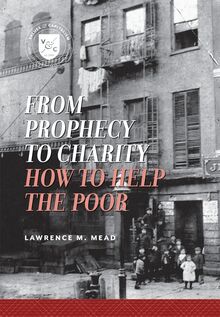-
 Univers
Univers
-
 Ebooks
Ebooks
-
 Livres audio
Livres audio
-
 Presse
Presse
-
 Podcasts
Podcasts
-
 BD
BD
-
 Documents
Documents
-
- Cours
- Révisions
- Ressources pédagogiques
- Sciences de l’éducation
- Manuels scolaires
- Langues
- Travaux de classe
- Annales de BEP
- Etudes supérieures
- Maternelle et primaire
- Fiches de lecture
- Orientation scolaire
- Méthodologie
- Corrigés de devoir
- Annales d’examens et concours
- Annales du bac
- Annales du brevet
- Rapports de stage
La lecture à portée de main
Vous pourrez modifier la taille du texte de cet ouvrage
Découvre YouScribe en t'inscrivant gratuitement
Je m'inscrisDécouvre YouScribe en t'inscrivant gratuitement
Je m'inscrisEn savoir plus
Vous pourrez modifier la taille du texte de cet ouvrage
En savoir plus

Description
Sujets
Informations
| Publié par | AEI Press |
| Date de parution | 16 octobre 2011 |
| Nombre de lectures | 0 |
| EAN13 | 9780844743813 |
| Langue | English |
Informations légales : prix de location à la page 0,0450€. Cette information est donnée uniquement à titre indicatif conformément à la législation en vigueur.
Extrait
Distributed by arrangement with the National Book Network 15200 NBN Way, Blue Ridge Summit, PA 17214 To order call toll free 1-800-462-6420 or 1-717-794-3800.
For all other inquiries please contact AEI Press, 1150 17th Street, N.W., Washington, D.C. 20036 or call 1-800-862-5801.
Copyright © 2011 by the American Enterprise Institute for Public Policy Research, Washington, D.C.
ALL RIGHTS RESERVED.
No part of this publication may be used or reproduced in any manner whatsoever without permission in writing from the American Enterprise Institute except in the case of brief quotations embodied in news articles, critical articles, or reviews. The views expressed in the publications of the American Enterprise Institute are those of the authors and do not necessarily reflect the views of the staff, advisory panels, officers, or trustees of AEI.
Mead, Lawrence M. From prophecy to charity : how to help the poor / Lawrence M. Mead. p. cm. Includes bibliographical references. ISBN-13: 978-0-8447-4380-6 (pbk.) ISBN-10: 0-8447-4380-1 (pbk.) ISBN-13: 978-0-8447-4381-3 (ebook) ISBN-10: 0-8447-4381-X (ebook) 1. Public welfare—United States. 2. Poor—United States. 3. Poverty—United States. I. Title. HV95.M347 2011 362.5’5—dc23
ACKNOWLEDGMENTS
I express appreciation to the American Enterprise Institute for commissioning this study and for the useful comments their editors and reviewers have made. However, responsibility for the final product is entirely mine.
INTRODUCTION
How should America respond to the presence of poor people in our midst? As the richest country on earth, the United States has great capacity to help the poor, and most Americans think we have a moral obligation to do so. Helping the poor is an important responsibility of government and of individuals and private organizations as well.
How best to help the poor, however, is not as clear as it may seem. Opinion leaders sometimes suggest we should simply spend more on the needy, giving them more benefits and services than they receive now. In this view, recent conservative administrations in Washington have unduly cut back our commitments. But our responsibility, I will argue, is not simply to spend more or less on the problem. Rather, it is to do what the poor most deeply require. Recent conservative policies are more effective than what came before, and it would be a mistake to abandon them.
The difficulty is that poverty involves more than low income. To defeat it does require spending money, but it also entails getting more of the needy to help themselves. The adult poor must work as other people do. Poor children must get through school and avoid trouble with the law and unwed pregnancy if they are to get ahead in life. Progress against poverty, then, requires programs with the capacity to redirect lives, not just transfer resources. Government has had some success in developing programs like this in recent years. Our best course is to continue down this road.
Ordinary Americans have practical views about poverty. They combine an earnest desire to help with an insistence that the poor help themselves. Political leaders, activists, and experts are much more polarized. Some have contended that the poor are entitled to aid regardless of lifestyle or, alternatively, that they should get nothing at all from government. Wiser views come from our religious traditions. In the Bible, God commands serious attention to the poor, but the emphasis is not on abstractions such as rights, freedom, or equality but on restoring community. That requires that there be right relationships among people within society and also between them and God. To that end, we must be generous toward the poor, but we should also expect good behavior from them.
A LOOK AHEAD
In the pages that follow, I describe America’s poverty problem, various critical perspectives about it, and recent policy developments. I also discuss some broader issues. All these dimensions help us understand how best to respond to poverty today.
Chapter 1 discusses what poverty means, how government measures it, and who the poor are in America. In the public mind, poverty has an economic and a behavioral dimension. The poor are those who have unusually low income for the society and who often have problems coping with life. The government’s measurement of poverty ignores the behavioral dimension, yet it cannot be avoided. The politics of poverty has reflected the public’s will both to help the poor and expect more self-reliance. That dual emphasis is also seen in the programs against poverty that government already has. Although some think America should give more to the poor, as Europe does, Europe has lately followed America’s lead in requiring work of many people living on benefits. That is because overcoming poverty cannot be imagined unless poor adults work more consistently than they have.
Chapter 2 addresses the crucial question of causes. How can it be that people are poor in the richest society on earth? Poverty tends to arise in the first place because poor parents have children outside marriage and then do not work regularly to support them. Thus, to explain poverty chiefly means explaining nonmarriage and nonwork. Those patterns, I will argue, cannot generally be traced to barriers to opportunity in the society, as many suppose. Culture and a failure to enforce norms such as work are more important. The history of antipoverty policy confirms this.
Chapter 3 takes up critical perspectives. How should we react to poverty as it is and to America’s existing policies? Secular ideologies tend to run to extremes. A rights tradition says that the poor should simply be given more benefits without expectations, while a libertarian tradition denies them any claim on government at all. Both views have clear limitations. Our religious traditions suggest a different and wiser perspective. The Bible makes helping the poor a priority, but the emphasis is not on rights or economics but on rebuilding community. To that end, the poor must receive aid, but they must also fulfill community norms about work and family life. I also consider two influential versions of a Christian perspective—Catholic social teaching and the new social gospel—that, in my view, stray from the biblical tradition.
Chapter 4 describes the great watershed in recent social policy known as welfare reform. “Welfare” mainly means cash aid to needy families. Welfare families are mostly female headed, meaning that the mother heads the family and the father is absent. In the 1990s, after decades of controversy, the federal government radically reformed family welfare to require most welfare mothers to work as a condition of aid. Reform was a test of competing views about the causes of poverty and also the critical responses to poverty. Most experts opposed reform, believing that few poor could work, given the barriers they faced. But most welfare mothers successfully left the rolls for jobs, with most of the leavers emerging better off. That confirmed the view I have suggested, that whether the poor work mainly reflects whether they are expected to, not the extent of opportunity.
Most church organizations opposed reform, believing it was unjust. But the popularity of reform, as well as its success, has forced some reconsideration. The reformed welfare system, combining more generous support with clearer work expectations, is in fact closer to the biblical vision than what came before.
Chapter 5 suggests the way forward. Alongside the reformed welfare system, other social programs have appeared with a paternalist character. These not only aid the poor in various ways but also seek to redirect lifestyle. We need effective work programs to serve nonworking men as well as welfare mothers, and we need more authoritative schools that set clear standards for poor students. Religious believers and faith-based organizations can make important contributions to developing such programs. The door is open for renewed progress against poverty.
Chapter 6 considers two larger issues that shed light on our poverty struggle. First, how should we respond to poverty beyond our shores? Destitution in many developing countries is far worse than in America, and its causes seem very different. Yet here too, it turns out, the poor themselves must take more initiative than they usually have. The obligation to overcome poverty cannot rest only on the rich. The second question is how we should reason about poverty in the most general terms. Religious critics of our current policies tend to adopt the prophetic voice—to speak of justice and to judge society unilaterally in God’s name. Under today’s conditions, I argue, they should rather speak of charity and adopt a more modest and collaborative style.
1 POVERTY, POLITICS, AND PROGRAMS
The baseline for any response to poverty must be basic facts about the problem. In this chapter I describe what we mean by poverty, how government measures it, and who is poor in America. I also summarize how the public reacts to poverty, which is the basis of the politics of poverty. I describe the social programs we already have to ameliorate poverty. Government does more to help the poor than many people realize, but these programs generally respect the distinctions the public draws between the “deserving” and “undeserving.”
WHAT IS POVERTY?
Poverty would be a simple problem if it only meant economic need. Sometimes it does. Children, the elderly and disabled, and families in the grip of natural disasters—all can be made destitute by forces beyond their control. But in an affluent society like ours, poverty is not usually forced on people for very long by conditions. Typically it has a behavioral dimension as well. The poor may suffer from low wages or health problems, for example, but most have become poor, at least in part, due to not working, having children outside marriage, abusing drugs, or breaking the law. This is particu
-
 Univers
Univers
-
 Ebooks
Ebooks
-
 Livres audio
Livres audio
-
 Presse
Presse
-
 Podcasts
Podcasts
-
 BD
BD
-
 Documents
Documents
-
Jeunesse
-
Littérature
-
Ressources professionnelles
-
Santé et bien-être
-
Savoirs
-
Education
-
Loisirs et hobbies
-
Art, musique et cinéma
-
Actualité et débat de société
-
Jeunesse
-
Littérature
-
Ressources professionnelles
-
Santé et bien-être
-
Savoirs
-
Education
-
Loisirs et hobbies
-
Art, musique et cinéma
-
Actualité et débat de société
-
Actualités
-
Lifestyle
-
Presse jeunesse
-
Presse professionnelle
-
Pratique
-
Presse sportive
-
Presse internationale
-
Culture & Médias
-
Action et Aventures
-
Science-fiction et Fantasy
-
Société
-
Jeunesse
-
Littérature
-
Ressources professionnelles
-
Santé et bien-être
-
Savoirs
-
Education
-
Loisirs et hobbies
-
Art, musique et cinéma
-
Actualité et débat de société
- Cours
- Révisions
- Ressources pédagogiques
- Sciences de l’éducation
- Manuels scolaires
- Langues
- Travaux de classe
- Annales de BEP
- Etudes supérieures
- Maternelle et primaire
- Fiches de lecture
- Orientation scolaire
- Méthodologie
- Corrigés de devoir
- Annales d’examens et concours
- Annales du bac
- Annales du brevet
- Rapports de stage
